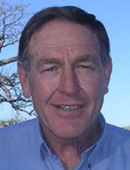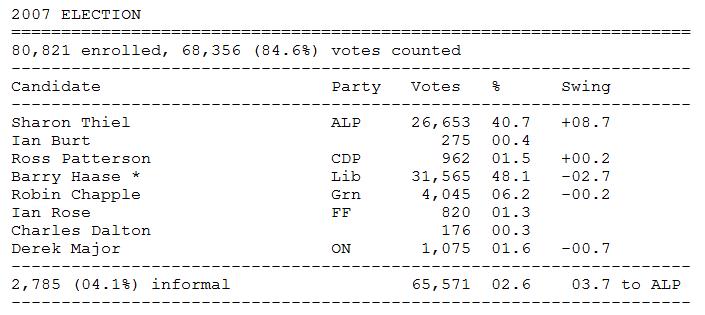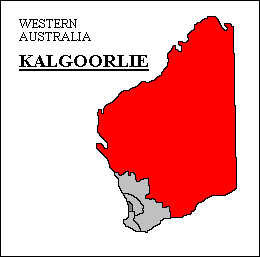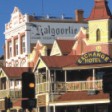
Barry Haase (Lib)
His Liberal Party website
|  |
Location: Outback WA: Broome, Esperance, Kalgoorlie, Port Hedland
Division named for: The City of Kalgoorlie, named in 1893.
The name is an Indigenous word meaning
"place of the silky pears"
Median weekly family income: $1,075 (36th highest)
Persons born in non English speaking countries: 5.1% (103rd highest)
Persons of Indigenous origin: 16.1% (2nd highest)*
Persons in professional occupations: 22.6% (103rd highest)
Persons aged 65 and over: 7.8% (133rd highest)
Couple families with dependent children: 44.3% (22nd highest)
Dwellings being purchased: 20.4% (123rd highest)
Sitting member: Barry Haase
(Liberal), elected 1996, 1998, 2001, 2004, 2007
Born: 19 November 1945, Southern Cross, Western Australia. Career: Company director
1996 two-party majority: Independent over Labor 10.4
Effect of 1998 redistribution: cannot be calculated
1998 two-party majority: Liberal 02.1
Effect of 2001 redistribution: no change
2001 two-party majority: Liberal 04.4
2004 two-party majority: Liberal 06.3
2007 two-party majority: Liberal 02.6

2004 enrolment: 81,987
2007 enrolment: 80,773 (-01.5%)
Kalgoorlie has existed since Federation, and since 1922 it has occupied three quarters of the state of WA,
making it by far the biggest electoral district in the world. In the south is the old gold-mining centre of
Kalgoorlie, in the north are the new mining communities of the Pilbara and the pastoral towns of the
Kimberleys. All these towns and the surrounding areas have significant Indigenous communities, giving Kalgoorlie
the second-largest Indigenous enrolment of any electorate, although the turnout rate among Indigeous voters is
lower than among other voters. Kalgoorlie has a high level of median income for a regional seat, reflecting
the very high wages earned by many workers in the mining industry. Kalgoorlie was for many years a safe Labor
seat, with the Labor vote based both in the mining towns and the pastoral workers. The Labor vote has been
weakened by the decline of the rural working class and the increasing tendency of mining companies to employ
contract workers rather than wage-earners. The increased Indigenous vote, which is solid for Labor, has not
compensated for this decline. The last Labor member, Graeme Campbell, elected in 1980, was
expelled from the party in 1996 and retained the seat as an independent. He was defeated in 1998 and later joined the
extreme rightwing One Nation party. In 1998 Barry Haase won
the seat for the Liberals and has since entrenched himself. In 2007 the Liberals won all the small booths in the eastern,
rural, part of the seat with large majorities (97% of the two-party vote in Cascade and over 90% in six other booths), as
well as winning most of the booths in the city of Kalgoorlie. Labor polled 70% at Kalgoorlie East and won most of the
Pilbara and Kimberley towns, as well as the remore mobile booths where most Indigenous voters vote.
The 2008
redistribution has abolished Kalgoorlie, whhich will cease to exist at the 2010 election, ending 109 years of electoral
history. The southern part of the seat, including Kalgoorlie city, will become part of O'Connor, while a new seat of Durack
will link the Kimberley and Pilbara with Geraldton and the northern wheatbelt. Haase has announced that he will contest
Durack in 2010.
|  | |

|







